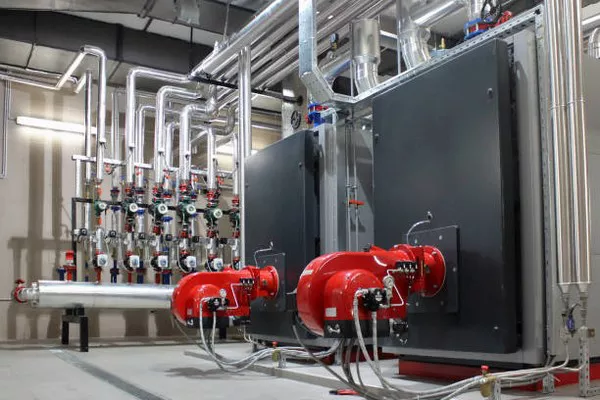In the realm of air conditioning systems, the AC compressor stands as the unsung hero, silently working to ensure your home or office remains a comfortable haven. This crucial component is the heart of any HVAC (Heating, Ventilation, and Air Conditioning) system, playing a pivotal role in the cooling process. In this article, we will delve into the intricacies of what an AC compressor is, its function, types, and the significance it holds in maintaining indoor comfort.
The AC Compressor: A Vital Component
At the core of any air conditioning system lies the AC compressor, a mechanical device responsible for pressurizing and circulating refrigerant within the system. Essentially, it acts as the pump that facilitates the transfer of heat from the inside of a building to the outside. The compressor’s primary function is to compress low-pressure, low-temperature gas from the evaporator coil, transforming it into a high-pressure, high-temperature gas.
The Compression Cycle
Understanding the operation of the AC compressor involves grasping the compression cycle. This cycle begins with the compressor drawing in the low-pressure refrigerant gas and compressing it to elevate its temperature and pressure. The now high-pressure, high-temperature gas is then sent to the condenser coil, where it releases heat to the surrounding environment, causing the gas to condense into a high-pressure liquid. This liquid then flows through the expansion valve, where it undergoes a rapid expansion, resulting in a low-pressure, low-temperature state. The cycle repeats as the refrigerant returns to the evaporator coil to absorb heat from the indoor air, and the process begins anew.
Types of AC Compressors
There are various types of AC compressors, each with its own set of advantages and disadvantages. The two main categories are reciprocating compressors and rotary compressors.
Reciprocating Compressors: These compressors operate much like a piston in an engine. They use a piston-cylinder arrangement to compress the refrigerant. Reciprocating compressors are known for their durability and efficiency, making them a popular choice for residential and small commercial applications.
Rotary Compressors: Rotary compressors, on the other hand, use a rotating mechanism to compress the refrigerant. This design allows for smoother, quieter operation and is often found in smaller air conditioning units and heat pumps.
Scroll Compressors: Another common type is the scroll compressor, which utilizes spiral-shaped components to compress the refrigerant. Scroll compressors are known for their reliability and energy efficiency, making them a popular choice in modern HVAC systems.
The Significance of the AC Compressor
The AC compressor plays a pivotal role in the overall efficiency and effectiveness of an HVAC system. Its proper functioning ensures that the cooling process operates smoothly, providing a comfortable indoor environment. Here are some key aspects highlighting the significance of the AC compressor:
Temperature Regulation: The AC compressor is instrumental in maintaining the desired temperature indoors by circulating and regulating the flow of refrigerant. Its ability to compress the refrigerant allows for the absorption and release of heat, contributing to effective cooling.
Energy Efficiency: The type and condition of the compressor significantly impact the energy efficiency of the entire HVAC system. Modern compressors, such as scroll compressors, are designed for improved energy efficiency, reducing energy consumption and operational costs.
System Longevity: A well-maintained AC compressor contributes to the longevity of the entire HVAC system. Regular maintenance, including cleaning coils and ensuring proper refrigerant levels, is essential to prevent wear and tear on the compressor and extend the system’s lifespan.
Noise Levels: The choice of compressor type also influences the noise levels produced by the HVAC system. Rotary and scroll compressors are generally quieter than reciprocating compressors, providing a more peaceful indoor environment.
Maintaining the AC Compressor
To ensure the longevity and optimal performance of an AC compressor, regular maintenance is essential. Here are some key maintenance practices:
Cleaning Coils: Dirty coils can reduce the efficiency of the compressor. Regularly cleaning the evaporator and condenser coils helps maintain proper heat exchange and system efficiency.
Checking Refrigerant Levels: Adequate refrigerant levels are crucial for the compressor to function optimally. Low refrigerant levels can lead to increased energy consumption and potential compressor damage.
Inspecting for Leaks: Refrigerant leaks can compromise the performance of the AC compressor. Regular inspections and prompt repairs are necessary to prevent further damage and maintain efficiency.
Lubrication: Proper lubrication of moving parts is vital for preventing friction and wear. Lubricate the compressor as per the manufacturer’s recommendations.
Conclusion
In conclusion, the AC compressor stands as the heart of any HVAC system, driving the cooling process that keeps our indoor spaces comfortable. Understanding its function, types, and significance provides valuable insight into the intricacies of air conditioning technology. Regular maintenance and attention to the health of the AC compressor are crucial for ensuring the longevity and efficiency of the entire HVAC system, contributing to a cool and comfortable living or working environment.

